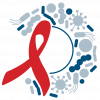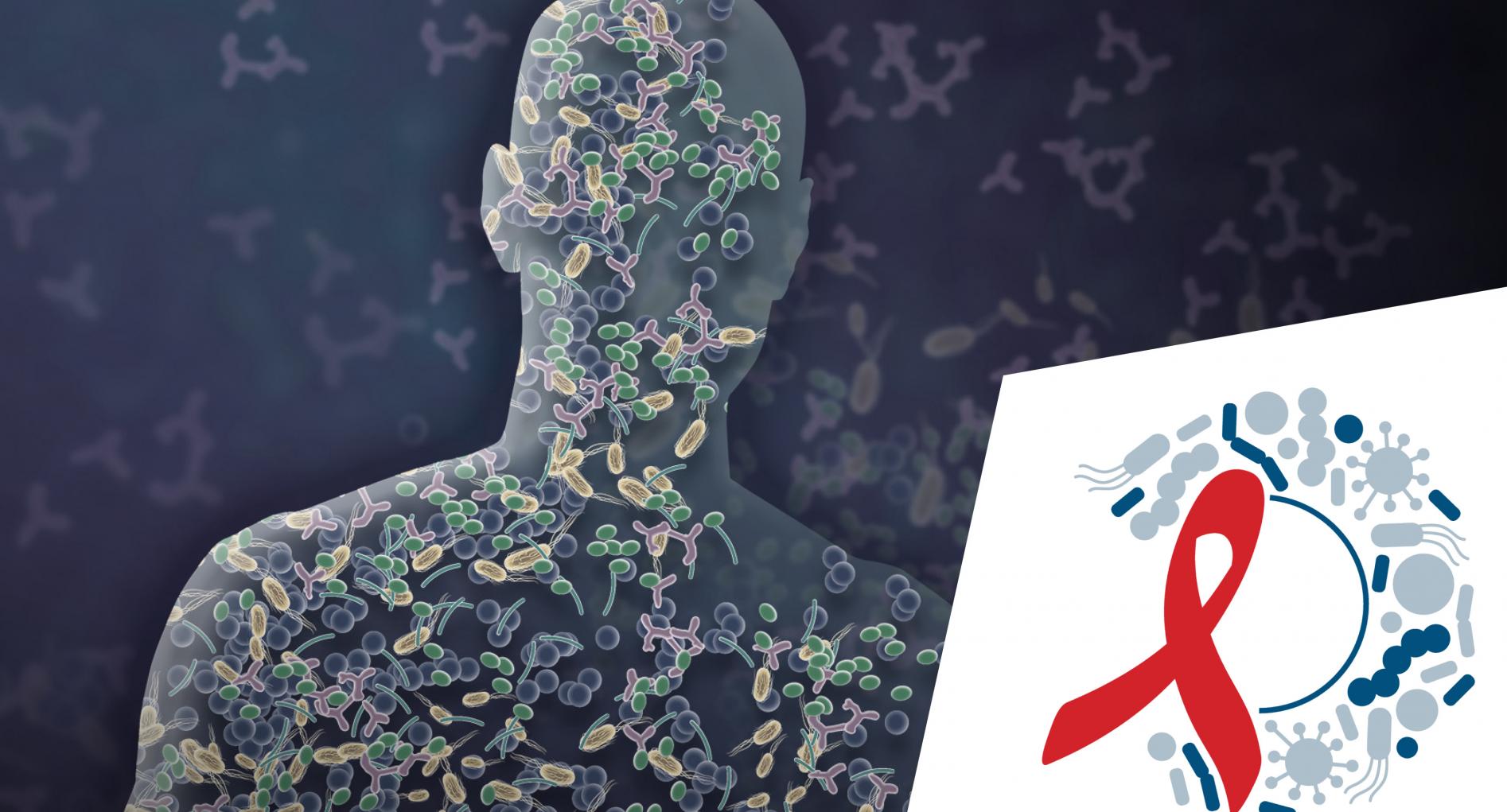Download the Program & Abstract Book
The presentation videos and slides for speakers’ lectures are made available, provided that they have granted us permission to do so

Download the Program & Abstract Book
The presentation videos and slides for speakers’ lectures are made available, provided that they have granted us permission to do so
Day 1 - Tuesday, 19 October 2021
Day 2 - Wednesday, 20 October 2021
Day 3 - Thursday, 21 October 2021

The 7th edition of the International Workshop on Microbiome and HIV Pathogenesis, Prevention, and Treatment 2021 successfully took place from 19 - 21 October 2021 in a virtual format.
The interplay between human gut microbiota and the immune response is an integral component of many physiological processes, but also pathological conditions. Therefore, understanding the microbiome-immunity crosstalk is central in order to illuminate molecular mechanisms that maintain hemostasis in health, but also to decipher what goes wrong in a disease.
This rapidly evolving research area may offer a comprehensive understanding on the interplay between the HIV infection and the host immunity, and how it contributes to an altered immune status and disease pathogenesis. This ultimately may lead to the identification of novel drug targets with a distinct mode of action compared to currently available therapies. Whereas research in this area may be presented at major conferences, there is often limited time for in-depth discussion and debate among cross-disciplinary experts on the new data and their implications.
This 3-day workshop had invited lectures by key opinion leaders, oral abstract presentations, and poster presentations. This data contributed to translating research achievements into opportunities for the development of preventive approaches to reduce virus transmission and to provide a better understanding of the impact of the microbiome on host immunity.
Clinicians and researchers with an interest in Microbiome and HIV Pathogenesis, Prevention, and Treatment are most welcome to attend this workshop.
Thanks for joining us at Microbiome & HIV 2021!
General Information
Practical Information
The members of the Organizing Committee (OC) discuss, on a frequent basis, the scientific program of the workshop, identify interesting topics and candidate speakers.
The members of the Scientific Committee assist the Organizing Committee by providing them with suggestions for speakers and topics. In addition, members of the Scientific Committee participate in reviewing submitted abstracts, and play an active role during the workshop as moderators and/or chairs of sessions.
Shaun Barnabas, MD - University of Cape Town, South Africa
Stacy Carrington-Lawrence, PhD - NIH/OAR, USA
Que Dang, PhD - NIAID/NIH, USA
Wendy Henderson, PhD, MSN, CRNP, FAAN - NINR, NIH, DHHS, USA
Steve Innes, MBChB, MRCPCH, MPhil, PhD - Stellenbosch University, South Africa
Douglas Kwon, MD, PhD - Ragon Institute of MGH, MIT and Harvard, USA
Angela Malaspina, PhD - NIAID/NIH, USA
John McGowan, PhD - NIAID, USA
Piotr Nowak, MD, PhD - Karolinska University Hospital, Sweden
Sandra Pinto Cardoso, PhD - Centre for Research in Infectious Diseases, National Institute of Respiratory Diseases, Mexico City, Mexico
Angela Wahl, PhD - University of North Carolina at Chapel Hill, USA
Cara Wilson, MD - University of Colorado, USA
Supporter
MSD has provided part funding for this Independent Medical Education program.
MSD has had no input into selection of speakers or the content of the materials and presentations.
Support Our Initiative
Financial backing helps us deliver an impactful meeting experience to the benefit of healthcare professionals involved in microbiome and HIV.
This collaboration plays a vital role in both the organizational as well as scientific success of the program.
To show your commitment to the cause and get in touch with us for a tailored support package, please contact Ms. Federica Ressa at federica@amededu.com or call +31 30 230 7140.
Benefits of Support
By supporting this program, we can offer the following advantages for your company. *Please contact us for the most recent support level benefits for this program.
*Subject to the support level.